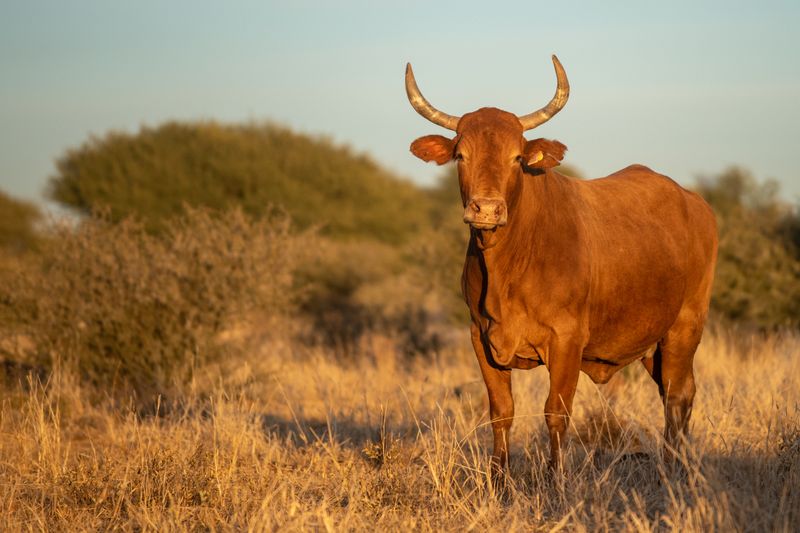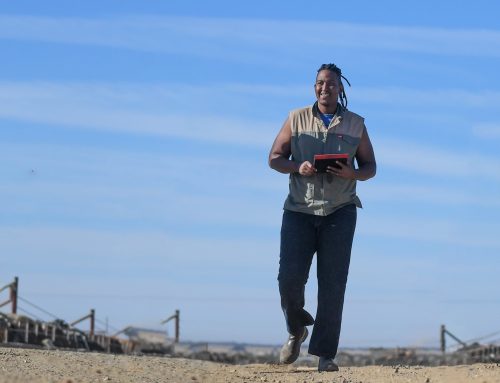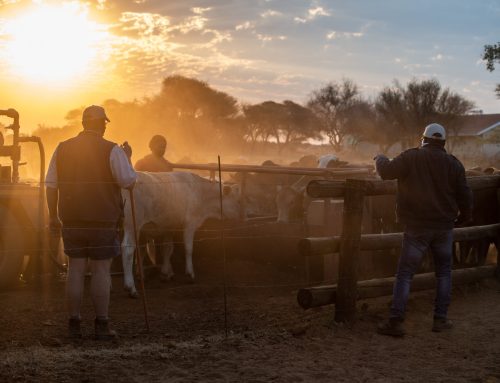NSPCA works tirelessly to save animals during disasters and threatening conditions
Raging veld fires are devastating for farmers and communities, who not only suffer financial blows, but also experience emotional losses, in the form of infrastructure, farmland and livestock. The crippling veld fires that gripped much of central South Africa and destroyed about 67 000ha earlier this month was no exception. Now, bitingly cold conditions persist across the area, increasing the threat of further losses for farmers.
“It is absolutely heart-breaking to witness the devastation on the farmers’ faces as well of those of our inspectors, when the animals can’t be saved due to the severity of their conditions,” says Grace de Lange, manager of the Farm Animal Protection Unit at the National Council of SPCAs (NSPCA).
The NSPCA, which works tirelessly and without much thanks to save the vulnerable and voiceless, plays a critical role during disasters such as fires and floods to save and treat wild animals who often aren’t able to escape due to the magnitude and speed of the disaster, or because they are trapped by fences and other border posts. They also help during times where adverse weather conditions threaten the lives of such animals.
In the most recent wildfires, the organisation worked with over 30 farmers in areas such as Petrusburg, Koffiefontein, Fauresmith, Edenburg, Christiana, Brandfort and Jagersfontein to save animals. The NSPCA, a joint effort in conjunction with the Bloemfontein SPCA, Virginia SPCA and Kimberly SPCA, were involved in aiding over 760 animals, including cattle, sheep, porcupine, tortoises, rabbits and springboks.
“Apart from the farm animals affected, wild animals were also affected by the fires and inspectors combed kilometres on foot looking for injured wildlife species. Inspectors also drove hundreds of kilometres from one area to the next, scanning the burnt landscape for animals that may have still been alive and in pain,” explains de Lange. “We also assist in these cases to get the wildlife to veterinarians as quickly as possible for treatment, with many being treated for burns.”
Unfortunately, the reality of such disasters sinks in, and not all stories have a happy ending.
“We did our best to save the animals, but many of them succumbed to their injuries given that they were so severely burned with no prognosis of recovery. In these instances, our role is to provide humane assistance and to prevent prolonged suffering. Seeing the level of pain that the animals are in due to their injuries never makes it any easier,” says de Lange.
Although the primary function of the SPCA is enforcement of animal protection legislation, it also responds to all disasters affecting farmers, such as disease outbreaks (African and Classical Swine Fever, Avian Influenza etc) and natural (floods, snow, drought) as well as manmade ones (fires). The NSPCA also aims to procure donations of supplementary feed for farmers affected by drought, fires, or other calamities. Education and training are also provided where needed.
Roelie van Reenen, supply chain executive at Beefmaster Group, believes that animal losses during the most recent fire outbreak would have been even more severe had it not been for the enormous task undertaken by the NSPCA to get involved.
“We have personally seen what amazing work is accomplished by the NSPCA, who rely on the goodwill of communities and organisations to keep going and respond timeously and adequately when disaster strikes,” says van Reenen.
De Lange says that for the organisation to continue assisting animals, the NSPCA needs to cover its running costs, which include salaries, vehicles, fuel and maintenance, food for outreaches and so on. It accepts donations of goods such as food and fuel, as well as monetary contributions and payment of accommodation when inspectors assist with disasters.
The Beefmaster Group regularly supports the NSPCA and assists the organisation in times of need.
“We urge companies, communities or individuals who are able to, to support the NSPCA so that they can continue the heroic work that they do, which is very evidently challenging, but absolutely vital.”
To find out how you can donate or help the NSPCA, please contact Grace de Lange on 011 907 3590 or farm@nspca.co.za.






